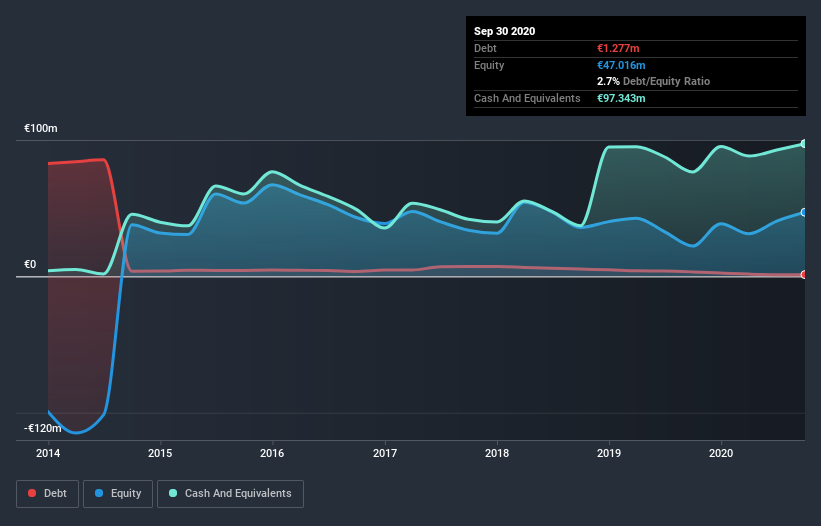Is Affimed (NASDAQ:AFMD) Using Debt Sensibly?
Legendary fund manager Li Lu (who Charlie Munger backed) once said, 'The biggest investment risk is not the volatility of prices, but whether you will suffer a permanent loss of capital.' It's only natural to consider a company's balance sheet when you examine how risky it is, since debt is often involved when a business collapses. As with many other companies Affimed N.V. (NASDAQ:AFMD) makes use of debt. But should shareholders be worried about its use of debt?
When Is Debt Dangerous?
Debt assists a business until the business has trouble paying it off, either with new capital or with free cash flow. Ultimately, if the company can't fulfill its legal obligations to repay debt, shareholders could walk away with nothing. While that is not too common, we often do see indebted companies permanently diluting shareholders because lenders force them to raise capital at a distressed price. Of course, debt can be an important tool in businesses, particularly capital heavy businesses. The first thing to do when considering how much debt a business uses is to look at its cash and debt together.
View our latest analysis for Affimed
What Is Affimed's Net Debt?
The image below, which you can click on for greater detail, shows that Affimed had debt of €1.28m at the end of September 2020, a reduction from €3.26m over a year. However, it does have €97.3m in cash offsetting this, leading to net cash of €96.1m.
How Healthy Is Affimed's Balance Sheet?
According to the last reported balance sheet, Affimed had liabilities of €45.2m due within 12 months, and liabilities of €15.7m due beyond 12 months. Offsetting this, it had €97.3m in cash and €2.55m in receivables that were due within 12 months. So it can boast €39.0m more liquid assets than total liabilities.
This surplus suggests that Affimed has a conservative balance sheet, and could probably eliminate its debt without much difficulty. Simply put, the fact that Affimed has more cash than debt is arguably a good indication that it can manage its debt safely. The balance sheet is clearly the area to focus on when you are analysing debt. But it is future earnings, more than anything, that will determine Affimed's ability to maintain a healthy balance sheet going forward. So if you're focused on the future you can check out this free report showing analyst profit forecasts.
In the last year Affimed had a loss before interest and tax, and actually shrunk its revenue by 44%, to €23m. That makes us nervous, to say the least.
So How Risky Is Affimed?
We have no doubt that loss making companies are, in general, riskier than profitable ones. And the fact is that over the last twelve months Affimed lost money at the earnings before interest and tax (EBIT) line. And over the same period it saw negative free cash outflow of €34m and booked a €39m accounting loss. While this does make the company a bit risky, it's important to remember it has net cash of €96.1m. That means it could keep spending at its current rate for more than two years. Overall, its balance sheet doesn't seem overly risky, at the moment, but we're always cautious until we see the positive free cash flow. When analysing debt levels, the balance sheet is the obvious place to start. But ultimately, every company can contain risks that exist outside of the balance sheet. To that end, you should be aware of the 2 warning signs we've spotted with Affimed .
If, after all that, you're more interested in a fast growing company with a rock-solid balance sheet, then check out our list of net cash growth stocks without delay.
This article by Simply Wall St is general in nature. It does not constitute a recommendation to buy or sell any stock, and does not take account of your objectives, or your financial situation. We aim to bring you long-term focused analysis driven by fundamental data. Note that our analysis may not factor in the latest price-sensitive company announcements or qualitative material. Simply Wall St has no position in any stocks mentioned.
Have feedback on this article? Concerned about the content? Get in touch with us directly. Alternatively, email editorial-team@simplywallst.com.

